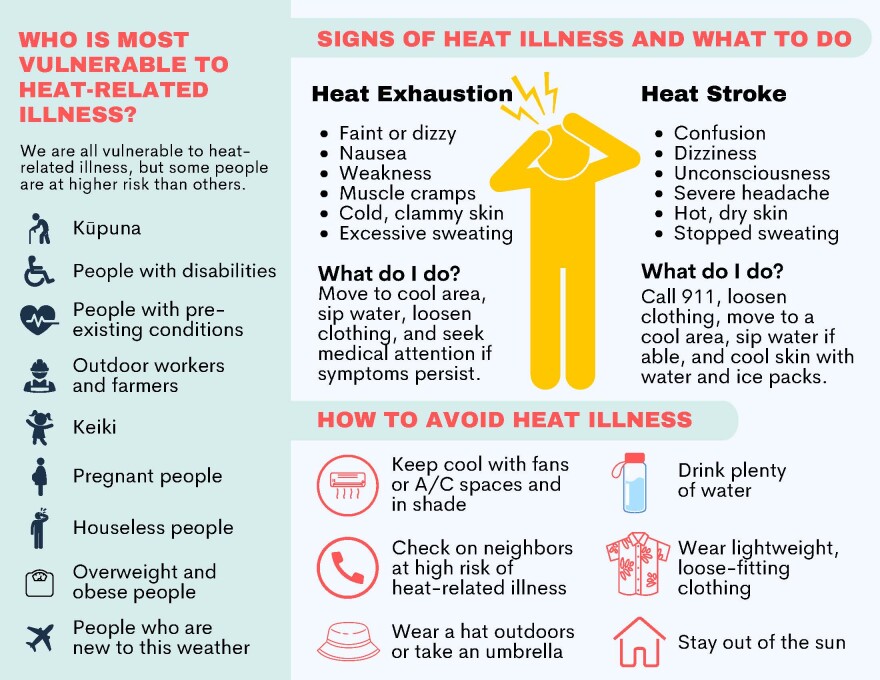Cities around the country are experiencing record-breaking temperatures.
Washington, D.C., saw a 3-day run of temperatures 101 or above, which hasn’t happened since the Dust Bowl. Las Vegas reported an all-time high of 120 degrees. Phoenix is investigating more than 300 suspected heat-related deaths, and the city's sidewalks have been hot enough to cause severe contact burns.
With much of the country gripped by heat, Hawaiʻi seems mercifully cool by comparison. But heat can be a problem for people in Hawaiʻi too.
Heat can cause dehydration, exhaustion, skin rashes and fainting. In extreme instances, a condition called heat stroke can cause the body's temperature to rise to 106 degrees or higher within minutes. Without treatment, heat stroke can be fatal.

The Hawaiʻi Department of Health has preliminary data collected over the last few years that shows between 400 to 600 people annually seek emergency care for heat-related illnesses on Oʻahu.
DOH's Dr. Diana Felton suspects those numbers may underestimate the true impact of heat in Hawaiʻi.
"Heat can contribute to illness in a way that's not so visible, especially for preexisting conditions," Felton said.
For instance, if someone with a heart condition comes to the emergency room suffering a heart attack, the role heat played may be overlooked.
"It may be heat that triggers that heart attack or that heart failure, but it may not be included as part of the diagnosis," Felton said.
Climate change is making the whole world hotter, and Hawaiʻi could see an over 7 degree temperature increase at sea level by the end of the century.
This summer, the state health department has partnered with the counties to roll out an information campaign on how people can recognize and protect themselves from heat illness. It's part of a broader initiative to raise awareness of how climate change may affect the health of people who live in Hawaiʻi.
Still, Felton said that at least for now, Hawaiʻi will likely be spared from extreme heat.
"I don't anticipate that we're going to be getting up in these kinds of heat waves we're seeing in the continental US any time in the immediate future," Felton said.





